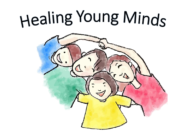Introduction
In today’s fast-paced world, mental health issues among teenagers are increasingly common, yet often overlooked. From anxiety to depression, our young ones face emotional challenges that can be difficult to navigate. However, there’s a harmonious healer that is both accessible and effective—music. In this post, we explore how melodies and rhythms can serve as a therapeutic tool for teenagers, and how artists like 365BM Music are leading the charge with tunes that touch the soul.
The Power of Music in Healing
Music transcends language and culture, making it a universal tool for emotional expression and healing. For teenagers, whose verbal skills are still developing, music offers a way to articulate feelings they might otherwise bottle up. According to several studies, music therapy can significantly reduce emotional distress and improve psychological well-being. It engages not just the ears but also the heart and mind, providing a creative outlet and a means of self-expression.
Introducing 365BM Music
Amidst the myriad of musicians, 365BM Music stands out with a poignant mission to connect deeply with her audience. Her songs are not just melodies but stories woven with the threads of poetry, spoken word, pop, and acoustic vibes. Her commitment is to share raw, unfiltered experiences that resonate with listeners, making them feel seen and heard in their most vulnerable moments.
365BM Music and Mental Health
For teenagers dealing with emotional and mental challenges, 365BM Music’s tracks can be particularly comforting. Songs that discuss personal struggles and resilience can be therapeutic. They provide not only solace but also a way for teenagers to see their own troubles mirrored and managed through music. For instance, her use of spoken word can help teenagers better articulate their feelings, while her acoustic arrangements soothe and calm.
Practical Applications
How can we use 365BM Music’s approach in therapy? Therapists and parents can incorporate her music into regular sessions, using her songs to initiate conversations about feelings and challenges. Activities might include discussing the emotions a song brings up, or even creating personal playlists of songs that speak to different emotions or experiences, which can help teenagers communicate what they might struggle to say outright.
Conclusion
Music, with its profound ability to echo our innermost feelings, proves an invaluable resource in addressing teenagers’ mental health. 365BM Music’s dedication to producing genuine and relatable content makes her music a perfect companion for therapeutic practices. By integrating her sound into the healing process, we can provide a comforting, expressive, and non-threatening medium for teenagers to explore and express their emotions.
Discover more about how 365BM Music can make a difference in the lives of young listeners by visiting her website. Explore her collection, listen to her stories, and perhaps find a song that speaks to you or your child’s journey. Click here to visit 365BM Music.
Engage with us in the comments below or share your experiences with music and mental health. How has music touched your or your child’s life? Let’s create a symphony of stories that inspire and heal.

